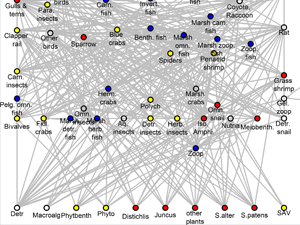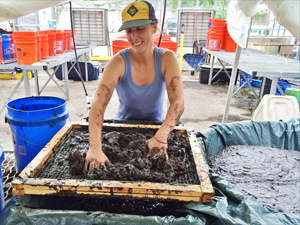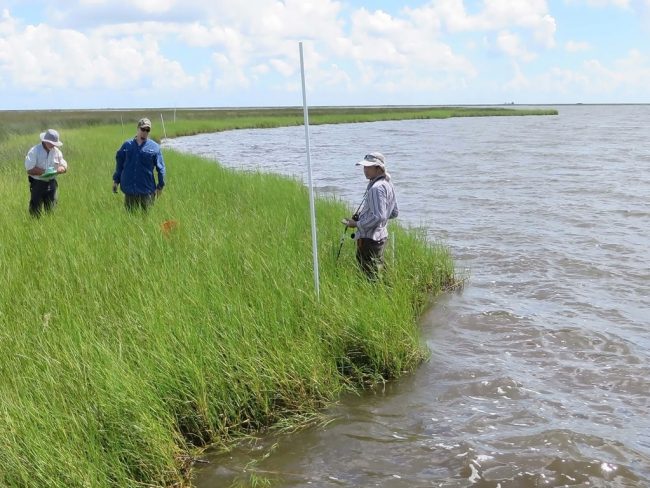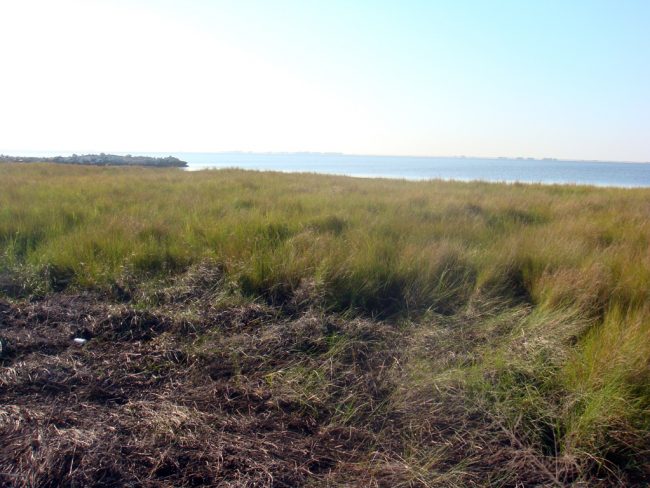Grad Student Johnson Uses Amino Acids to Demystify Salt Marsh Food Webs
Salt marshes support commercially and culturally important species and are often subject to natural and human-caused stressors. Gaps in our knowledge of salt marsh food webs made management and restoration decisions difficult after the Deepwater Horizon spill. Jessica Johnson helps fill this gap.









